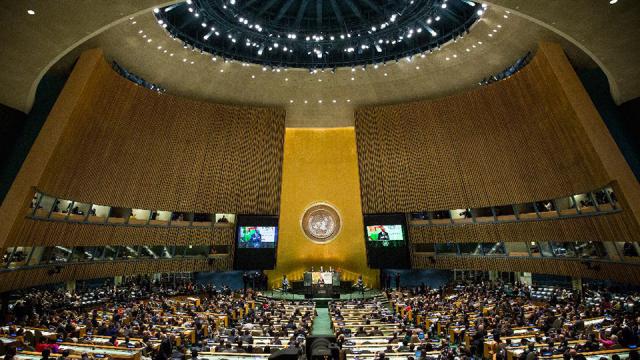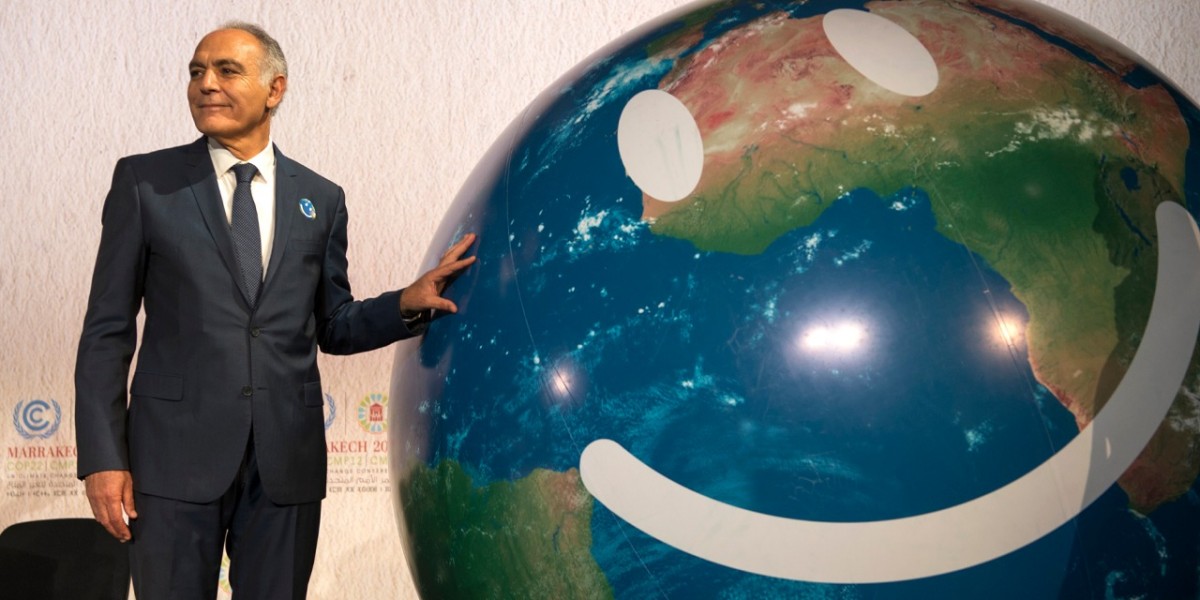
BONN, Germany – As a group of developing countries is seeking to remove big polluter lobbyists from UN climate change negotiations, the proposal is being met with fierce opposition by the U.S., E.U. and other countries with oil interests.
Delegates from 196 countries convened this past week in Bonn, Germany, in preparation for COP23, the next UN climate talks scheduled for November. Among them are hundreds of members from civil society and NGOs as well as industry representatives.
Some of those industry representatives, who roam the hallways and conference rooms here at the climate talks, are funded by the world's biggest polluters and climate change deniers. Although the interests of the fossil fuel lobbyists run counter to environmental protection, until today they have been allowed to attend the international climate conferences hosted by the United Nations Framework Convention on Climate Change (UNFCCC).
It is a situation that the Like Minded Group of Developing Countries wants to change.
For years, the group, which represents more than half of the world's population and includes countries like India, China, Egypt, Indonesia, Philippines, Iran, Pakistan and Ecuador, has criticized the involvement of big polluters in global climate negotiations. Now, for the first time ever, their calls are being officially heard at the UN climate talks in Bonn.
Central to the group’s proposal is a so-called conflict of interest policy. The World Health Organization also has such a policy, which bans tobacco companies from lobbying. If the proposal succeeds, it will restrict access of big oil lobby groups to future UN climate negotiations.
Opposing Interests
According to a recent report by Corporate Accountability International (CAI), entitled "Inside Job: Big Polluters' Lobbyists On the Inside at the UNFCCC," fossil fuel lobby groups have proved very successful getting their way at previous climate talks, where “they undermine, weaken, and block progress.” The report sheds light on the most influential lobby groups, like the National Mining Association, which aggressively promotes coal consumption while advising governments on how best to avert climate disaster.
In fact, the Washington, D.C.-based NMA actively participates in UN climate negotiations abroad while suing against pivotal climate policies at home. Last year, it filed a lawsuit against President Obama's Clean Power Plan.
In other instances, the U.S. Chamber of Commerce, which advocates offshore oil production and drilling in the Arctic National Wildlife Refuge, sits in the same rooms where delegates discuss policy options to protect the environment.
Despite increasing criticism against the lobby groups, neither the Chamber nor the NMA are worried about losing their influence. Following CAI’s report, the Chamber wrote in a blog post that the conflict of interest policy “won’t happen because, at the end of the day, governments know it will be the private sector – not CAI – that develops, finances, builds, and operates the new energy and other technologies of the future.”
The NMA said it plans to drop out of international climate negotiations altogether regardless of whether such a policy is enacted or not. “We do not believe U.S. interests are served by participating [in the UN climate talks] because our government’s domestic energy policy, which includes all energy sources including fossil energy, is far more likely to encourage investment in the technologies that will make coal and other fossil fuels cleaner to use,” said Luke Popovich, a spokesman for the NMA.
Big Conflict Brewing
The conflict of interest proposal has been met with fierce criticism, not only by the lobby groups themselves but also by countries with powerful oil interests like the U.S., Canada, Russia, Saudi Arabia and certain nations in the E.U.
The debate about how to deal with fossil fuel lobby groups has been ongoing throughout the 10-day-long meeting in Bonn, which ends Thursday, May 18. Heated exchanges have followed endless discussions, and numerous meetings have broken without a consensus.
“Right now it seems like the developing countries are willing to compromise as long they get their voices heard. And the northern countries are just saying 'No',” said Jesse Bragg, spokesman for CAI, who has been observing the debate.
“It’s the typical dynamic,” he added.
It will take months, maybe even years, before the countries will decide on how to deal with lobby groups and whether to introduce a conflict of interest policy. The discussions will continue at the COP23 in November and most likely in the sessions that follow next year, observers say.
“The U.S., E.U., Australia and Canada are determined to protect their polluting industries, so as things stand, fossil fuel companies can sleep easy knowing any conflict of interest policy will be blocked and their access to the talks will be safe,” said Pascoe Sabido, Researcher at the Corporate Europe Observatory.
But the UN is finally discussing the issue of colliding interests of big oil, gas and coal lobby groups and that’s the first step, he added.
“The battle to kick tobacco lobbyists out of the WHO and public health policy was also won by building pressure from below, at national level, and this will be no different.”
Bragg agreed that the UNFCCC will sooner or later introduce a conflict of interest policy. “I think it’s just a matter of time. The policy has broad support in the civil society. It won’t disappear,” he said.
3 WAYS TO SHOW YOUR SUPPORT
- Log in to post comments












